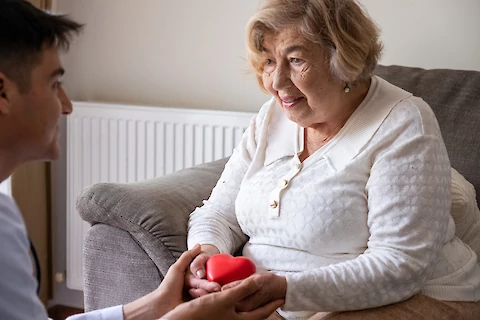
Mental Illness Awareness Week is a good time to shine a spotlight on a demographic not often associated with this issue - our senior population. Family caregivers play a significant role in managing the health of seniors, and understanding mental health conditions is essential to this role. Learn the common mental illnesses affecting seniors and their impact on their quality of life. We will provide insights into their symptoms and offer practical tips for managing these conditions. Our goal is to equip caregivers or family members with the necessary knowledge to aid the seniors in their lives.
Common Mental Illnesses in Seniors
First, we must familiarize ourselves with the types of mental illnesses commonly affecting our seniors. Here are a few to look out for:
1. Depression
Depression is a frequent and common mood disorder that often affects seniors. It manifests with symptoms of persistent sadness, loss of interest in activities, or unexplained physical aches. It is more than just occasionally feeling 'down.' It can significantly impact a senior's ability to enjoy life.
2. Anxiety
Anxiety disorders, though less discussed, are just as prevalent among seniors. Symptoms include chronic worrying, restlessness, and trouble with concentration. Notably, seniors may experience anxiety differently, often reporting physical rather than emotional symptoms.
3. Dementia
Dementia-related disorders, including Alzheimer's, are pertinent issues in senior mental health. These conditions cause a decline in memory, problem-solving, and other cognitive abilities that can interfere with daily life.
Caregiving for Seniors with Mental Illnesses
Caring for seniors with mental illnesses presents unique challenges. Patience and understanding are essential. Use simple, clear sentences and maintain a calm demeanor to communicate effectively. Creating a safe and comfortable living environment can also help manage these conditions. This might involve removing safety hazards for those with dementia or creating tranquil spaces for those with anxiety. Caregivers should encourage activities that promote mental well-being. Regular exercise, social interaction, and hobbies can greatly enhance a senior's mood and cognitive function. Consult with healthcare providers for the best options and before starting any new exercise routine.
Available Treatments and Support Structures
While managing these conditions at home is essential, professional help can greatly enhance a senior's quality of life. Treatments like medication, therapy, or even specialized memory care programs can be beneficial depending on the condition. Caregivers can take advantage of various support structures to help them along the way. For instance, local or online support groups provide a platform to exchange experiences and coping strategies. Respite care services offer short-term relief for caregivers, while educational resources can provide you with the latest caregiving approaches.
Senior Helpers Understands Mental Health Challenges
Senior Helpers offers professional, in-home senior care services, including helping to manage various mental health conditions. If you live in the Anderson, Easley, Seneca, or Pickens areas, don't hesitate to contact us at Senior Helpers Anderson, SC. Our team is well-equipped to support caregivers, families, and the senior loved ones they care for.